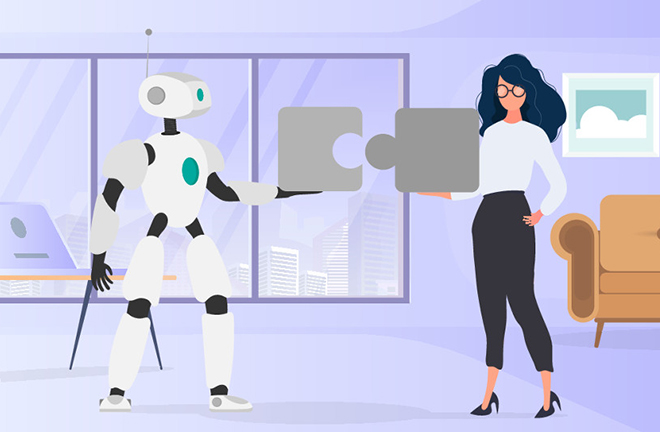The labor theory of value in AI era

Exploring a new labor theory of value tailored to the AI era may promote common prosperity. Photo: TUCHONG
The current viewpoint declaring Karl Heinrich Marx’s labor theory of value obsolete primarily argues that the widespread adoption of unmanned production undermines the core tenet of the theory, which states that labor is the sole source of value. However, this reasoning not only misinterprets Marx’s labor theory of value but also lacks a detailed analysis of the trends in Artificial Intelligence (AI) development.
Collective worker
Historically, in the pre-internet era, automated machines were mechanical systems with internal driving forces. Those systems required the supervision and assistance of human workers to perform tasks. At that time, automated machines were not fully autonomous and consistently relied on the presence and assistance of human laborers. In the internet era, automated machines are composed of software and hardware, enabling humans to remotely control their operations through internet-mediated interactions. This era has witnessed the rise of unmanned factories, where human workers and intelligent machines form a dualistic production environment facilitated by the internet. With the coming of the AI era, engineers only need to design the initial program for the software of intelligent systems, which subsequently undergo iterative updates and deep learning through vast datasets. This integration gives rise to the concept of a “collective worker.”
Unmanned factories coexist with roles like software coders, data engineers, and internet users, collectively constituting the various links of the collective worker. The production of value becomes socialized and holistic, emphasizing non-material or digital production as a primary mode of social production.
New tasks
AI is driving a structural transformation in the field of productive labor and the subjectification of AI, challenging Marx’s labor theory of value in unprecedented ways. This challenge is twofold: firstly, it manifests in the increasingly blurred boundaries of distinctions such as the distinction between value and use-value, and the distinction between abstract labor and concrete labor, amid humanity’s ongoing digital transformation. These theoretical distinctions, originally framed by Marx to grasp the capitalist reality of the industrial age, now confront the realities of both capitalist and socialist systems in the AI era, and both are undergoing digitalization. Secondly, this challenge is evident in the issues arising from the iterative development of AI. These issues become particularly pronounced as AI reaches the threshold of independent consciousness, intersecting with transformations of human labor value order, and even ethical and moral order.
Until AI acquires independent consciousness, it remains a mere production tool, akin to the automated machines described by Marx in his time. Above this threshold, AI possesses autonomy and attains the same moral status as humans, becoming another entity on par with humanity.
At this stage, the core idea in Marx’s labor theory of value that labor is the sole source of value is challenged. Responding to this challenge constitutes another important task of the labor theory of value. At present, there are at least two ways to respond to this challenge: one is to abandon the core idea of labor as the sole source of value in Marx’s labor theory of value and to propose a new labor theory of value based on the new reality. This approach may not necessarily align with Marxism. The other is to accept the core idea that labor is the sole source of value and provide a multi-entity interpretation of entities who “labor,” thereby accommodating the labor of the AI entity. This approach can be considered Marxist or compatible with Marxism.
Qin Zizhong is a professor from the School of Marxism at Hainan University.
Edited by ZHAO YUAN
